
Week’s balance: easing for businesses, hryvnia drop, and slap in Gazprom’s face in Stockholm
The government canceled more than 300 regulatory acts to facilitate doing business, while the prime minister called on representatives of fiscal bodies who disagree with such a "philosophy" to resign; the National Bank tames the hryvnia with market methods; and the Stockholm Arbitration has announced its final decision on the mutual claims of Naftogaz and Gazprom regarding the contract for the purchase of gas in favor of the Ukrainian side - these are this week’s main economic news.
The passing week will be remembered by many Ukrainians for an actual snow siege. And although meteorologists warned about the bad weather well in advance, everything tuned out to become traditionally "unexpected" judging by huge traffic jams.
It all started on Monday morning. The snowstorm has de-energized 147 settlements in six regions - in the north, east, and central parts of Ukraine. But it was the motorists who suffered most amid a traffic collapse.
It particularly affected Kyiv region and the capital city. Due to a snowstorm on December 18, the Kyiv authorities banned trucks from the city, while some 450 emergency vehicles were deployed around the clock to clear the streets from snow. Despite these efforts, the city was locked in traffic jams.
There were also jams across the regions. Ukravtodor road management agency imposed restrictions on the movement of heavy vehicles in another 4 regions - Zhytomyr, Cherkasy, Poltava, and Vinnytsia. Against this background, multi-kilometer jams formed at the entrances to the cities. A striking example was the situation on the Kyiv-Odesa highway, on the border of Kyiv and Cherkasy regions, where about 800 lorries were stranded in heavy snow and thick ice, creating a 7-km traffic jam. To assess the real scale of the traffic collapse and take appropriate measures, head of the National Police Serhiy Knyazev personally flew to the scene on a helicopter. Thanks to the efforts of rescuers, the traffic on the highway was resumed in 24 hours.
Bad weather conditions also affected the railway traffic and air travel. The Kyiv Airport redirected part of the flights to the nearby Boryspil, while some were even canceled. About 30 passenger trains could not arrive at their destination on schedule.
Prime Minister Volodymyr Groysman also responded to the snow apocalypse. At a Cabinet meeting, he urged state agencies and local authorities to respond as quickly as possible to the consequences of snowfalls that led to traffic jams in populated areas as well as on national and local roads.
Protection of businesses
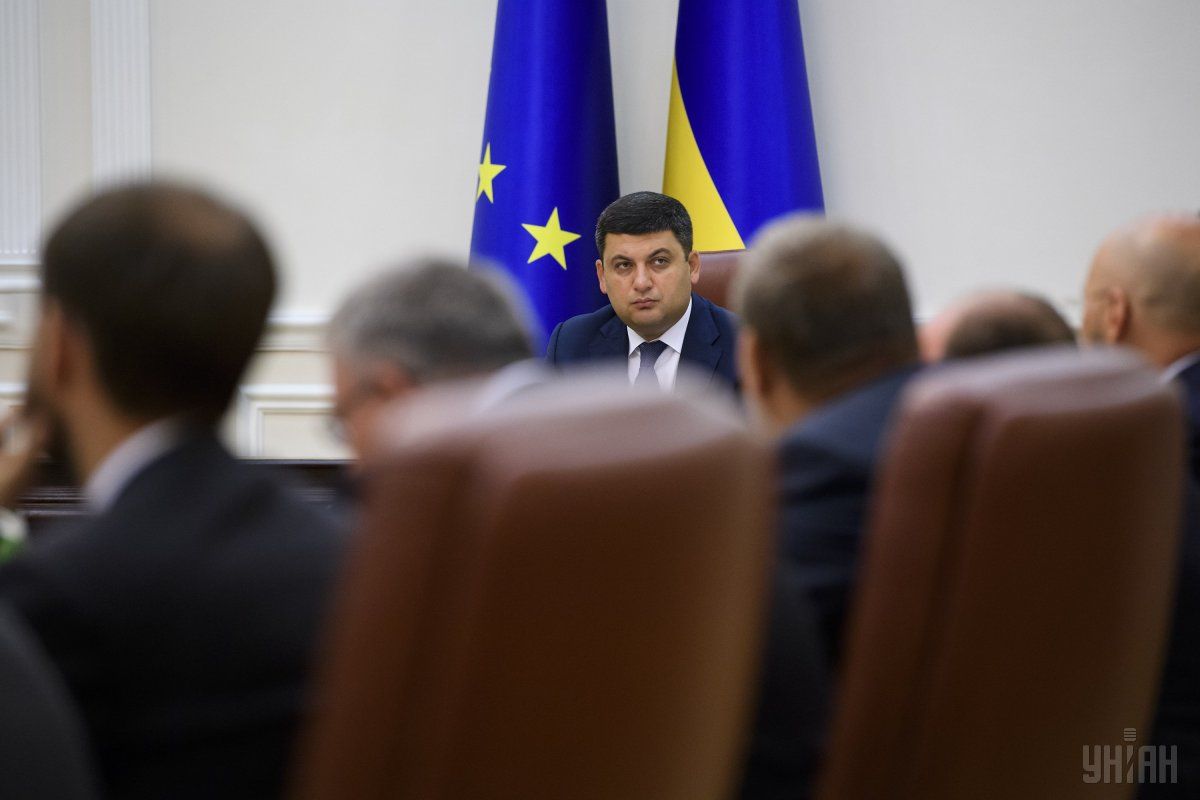
In addition to dealing with the bad weather, the government also engaged in eliminating the pressure on businesses on the part of regulatory bodies. Thus, the prime minister instructed the government to set up by year-end a monitoring commission involving representatives of business associations to analyze the work of law enforcement agencies in relation to businesses. It was also decided to introduce representatives of business associations into anti-raiding headquarters established across Ukraine’s regions.
Groysman instructed within three months to develop a system for assessing the risks in doing business, to ensure that regulatory bodies could audit companies based on such analysis.
"We will give you 3 months to set up a system of risks and check-lists for these risks. January, February, and March - until April 1, each monitoring body should have a risk prevention system and check-lists, which we will monitor," the prime minister said. Thus, for each type of business, a single list of regulatory requirements will be formed in 2018, while the regulatory authorities will have to switch to individual standards approved by the government within 3 months, to allow inspecting businesses despite the enforced moratorium. By the way, in 2018 this moratorium is expected to become "reasonable".
"The moratorium on business audits will be "reasonable" this time. This will maintain a high level of safety and not allow pressure on businesses," the prime minister said.
According to Deputy Minister of Economic Development and Trade Maksym Nefyodov, in 2018 a ban will be lifted on inspections for 13 bodies, in particular, veterinary control and nuclear regulation.
"There are areas where we can no longer ban inspections. The safety of our citizens is our priority task," Nefyodov said.
Another important step toward improving the business climate was the government's decision to abolish more than 300 regulatory acts within the framework of deregulation.
In particular, the changes will allow raising the limits for mandatory use of cash registers for activities carrying no significant risks, simplifying the procedure for recording cash flow, stimulating domestic production of chemical products, simplifying customs clearance of goods in ports and administrative support for the extraction of energy resources, and abolishing outdated regulations.
"If someone from the controlling bodies does not accept the government's philosophy that it is necessary to not interfere with businesses’ work, and not create obstacles for people. If someone fails to get it, then, please, they should immediately leave these bodies. And this is a fundamentally important issue," Groysman said.
Of course, deregulation is a good thing, but it's important not to play too much with it. It seems that the government understands this.
"All-embracing deregulation has led to many occasions when one is able to misbehave. 90% of entrepreneurs are conscientious and will never abuse such things, but there are also those who will do so," Groysman emphasized.
In this regard, the Cabinet of Ministers instructed the Ministry of Economic Development and Trade, the Office of Effective Regulation, the Government Secretariat, and the Ministry of Justice to work out proposals for increasing liability for violation by businesses of certain regulations.
As Groysman noted, after the abolition of certain regulatory acts, some businesses began to abuse the quality of services provided, so it is necessary to increase their responsibility before their consumers.
Ukrzaliznytsia’s plans
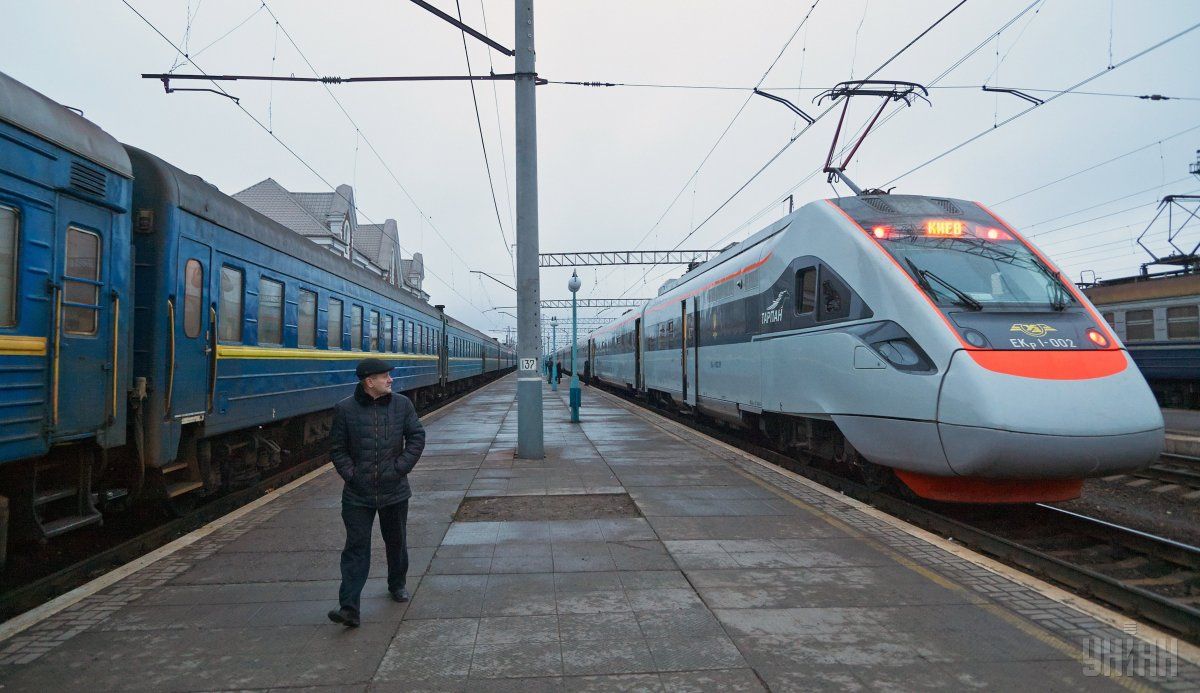
On the eve of New Year’s holidays, the government decided to hold two meetings instead of the usual one. On Wednesday, acting head of Ukrzaliznytsia, Yevhen Kravtsov, reported on the plans for investment projects for 2018 worth UAH 18 billion.
Among the priorities is the purchase in 2018 of 30 General Electric diesel locomotives with the level of Ukrainian localization of production at 10%, the production in 2018 of 3,000 rail cars, and the purchase of 10,000 rail cars with the participation of the European Bank for Reconstruction and Development.
"Our whole fleet is 25,000 rail cars - that is, we’ll see renovation of half of our fleet. It's unprecedented," Kravtsov said.
Among other priorities is the modernization of the Mariupol-Zaporizhia route worth UAH 780 million, which will increase the capacity from 21 to 50 pairs of trains a day with an economic effect at UAH 108 million per year. Another priority route is Dolynska-Mykolayiv-Kolosivka. Its modernization will cost UAH 722 million, while the project’s economic effect is UAH 722 million with a payback period of 7 years. It is also planned to electrify the Kovel-Izov-state border route, with the economic effect at UAH 187 million per year, as well as the Potoki-Zolotnishine route with an economic effect of UAH 73 million. The implementation is also scheduled of an investment program for the supply and distribution of electricity with an economic effect of UAH 395 million a year.
"On all projects, the annual economic effect is UAH 2.4 billion. This is an unprecedented figure," Kravtsov said.
Prime Minister Groysman instructed Ukrzaliznytsia to submit for government consideration in the near future the company’s financial plan, taking into account the scheduled investment projects.
In addition to investment plans, the meeting raised the issue of the formation of the management team at Ukrzaliznytsia. After the resignation of CEO Balczun, the Cabinet appointed a company’s acting president head of Ukrzaliznytsia board, Mr Kravtsov. It was then declared that the appointment was temporary and it was necessary to immediately announce a staffing competition. However, to date, this has not happened.
Also, the question of the formation of the Supervisory Board has been frozen. The Cabinet of Ministers announced the contest for the selection of its independent members in October, but there has been no decision yet. According to Kravtsov, more than 50 candidates applied, many of them foreigners.
Groysman urged government members to make proposals for the formation of an effective management at Ukrzaliznytsya, and also expressed doubts over the professionalism of many applicants for the positions of members of its supervisory board.
"Submit proposals for the formation of an effective management team. And we will think about how we are to form a professional advisory board. We have some applications, but I would say that there are questions to many contestants related to their professional level. We need to form a Supervisory Board of 7 quality people, professionals with an impeccable reputation," Groysman said.
Minister of Infrastructure Volodymyr Omelyan said that the current situation in Ukrzaliznytsia ties their hands and leads to great losses and corruption. According to him, Kravtsov works with the team of the previous CEO, and this does not give him the opportunity to pass the decisions required. Another pressing problem of Ukrzaliznytsia is blocked tenders, and it was also touched upon at the Cabinet meeting.
To resolve this issue, Groysman instructed the Ministry of Internal Affairs to conduct an investigation. "I believe that this is not just a blocking of tenders, it is a crime against the state," Groysman stressed.
Hryvnia drop
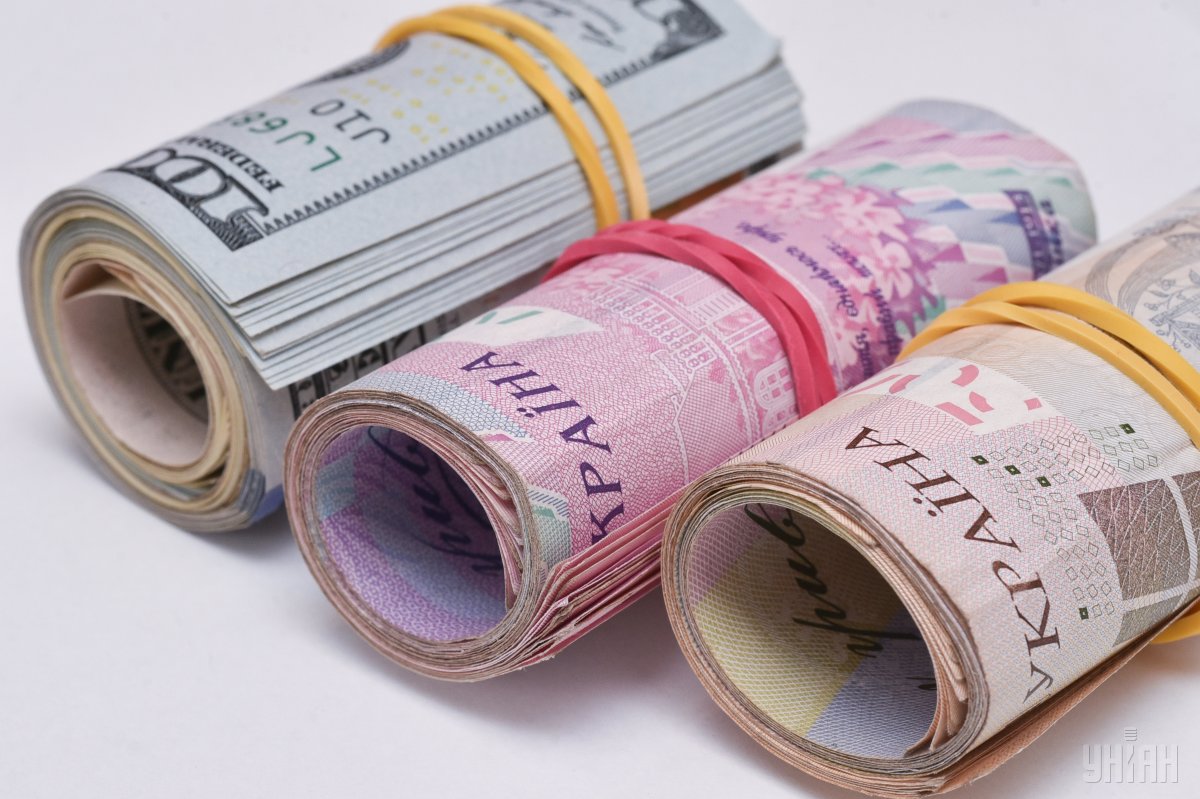
Ukrainians this week were shocked by the latest currency rates. Hryvnia quotations against the U.S. dollar fell to their minimum this year – to UAH 27.90 / USD. The dollar in Kyiv exchange offices cost UAH 28.4-28.8. Over the past week, the national currency has fallen in price to the dollar by more than 40 kopiykas, and within this month – by more than a hryvnia. Given this trend, the National Bank held currency auctions: on Monday the regulator sold $75.2 million at the rate of UAH 27.855 / USD, and on Friday it sold $42.9 million at UAH 27.9306 / USD.
The National Bank said that it was possible to stabilize the situation in the foreign exchange market using market methods without introducing new administrative restrictions.
According to deputy head of the NBU, Dmytro Solohub, market mechanisms include interventions in the foreign exchange market to smooth out excessive fluctuations. At the same time, the NBU believes that there are no fundamental reasons today for hryvnia devaluation.
It should be noted that the hikes in the dollar exchange rate at the end of the year have already become a New Year's tradition for Ukraine. Among the reasons for the fall is the growth in demand for foreign currency for payments on foreign currency loans and the lack of the need for exporters to sell their foreign exchange earnings after receiving a VAT refund. The main engines of the fall, according to the NBU, are seasonal and psychological factors.
"On the other hand, there are psychological factors, and the lack of cooperation with the IMF is one of them," Solohub said.
President of the European Business Association Tomas Fiala believes that if Ukraine does not resume cooperation with the International Monetary Fund in 2018, the hryvnia exchange rate may drop below UAH 30 / USD.
"If until the end of the second quarter of 2018 and until the beginning of the political campaign we fail to resume cooperation with the International Monetary Fund, we can forget about hryvnia stability. Reserves can begin to shrink significantly ... If there is no cooperation with the IMF, the rate will clearly exceed the level of UAH 30 / USD, and it is difficult to predict where it will stop," he said.
At the same time, in his opinion, if Ukraine continues its cooperation with the IMF, the hryvnia rate will remain in the range of UAH 26-29 / USD before the end of next year.
But Finance Minister Oleksandr Danyliuk has a different opinion. He believes that the hryvnia exchange rate, fixed in the state budget for 2018 at about UAH 30 / USD, is the most realistic one.
"When we were forming the budget, we focused on such a hryvnia exchange rate, and we believe that it is realistic for the next year," the minister said.
By the way, in the draft state budget, the average annual rate of the hryvnia is UAH 29.3 / USD and UAH 30.1 UAH at next year-end.
Following the exchange rate, fuel prices also increased. The cost of A-95 gasoline on Monday in large networks of gas stations under the brands OKKO and WOG exceeded UAH 30 per liter. For many experts, this was not a surprise because the trend of price growth has been observed for 4 months already. From August to November inclusive, average fuel prices increased by UAH 2.8-3.3 per liter.
According to Minister of Energy and Coal Industry Ihor Nasalyk, the price of motor fuel was influenced by the increase in the price of a barrel of oil and a fall in the exchange rate of the national currency. In mid-December of 2017, the Ministry of Energy and the Antimonopoly Committee set up a commission to analyze possible collusion in the market of light petroleum products. In the outgoing week, the AMC stated that it had launched an investigation into possible concerted actions between gas station networks under OKKO and WOG brands hindering competition in the fuel market. According to AMC data, the agency revealed the facts of simultaneous and unidirectional establishment of fuel prices in these chains of gas stations.
"During 2017, the Committee recorded more than 10 such cases, which may be due not only to objective factors but also a result of anticompetitive concerted actions," the AMC said.
Obviously, soon the relevant decisions will follow.
Stockholm slap in Gazprom’s face
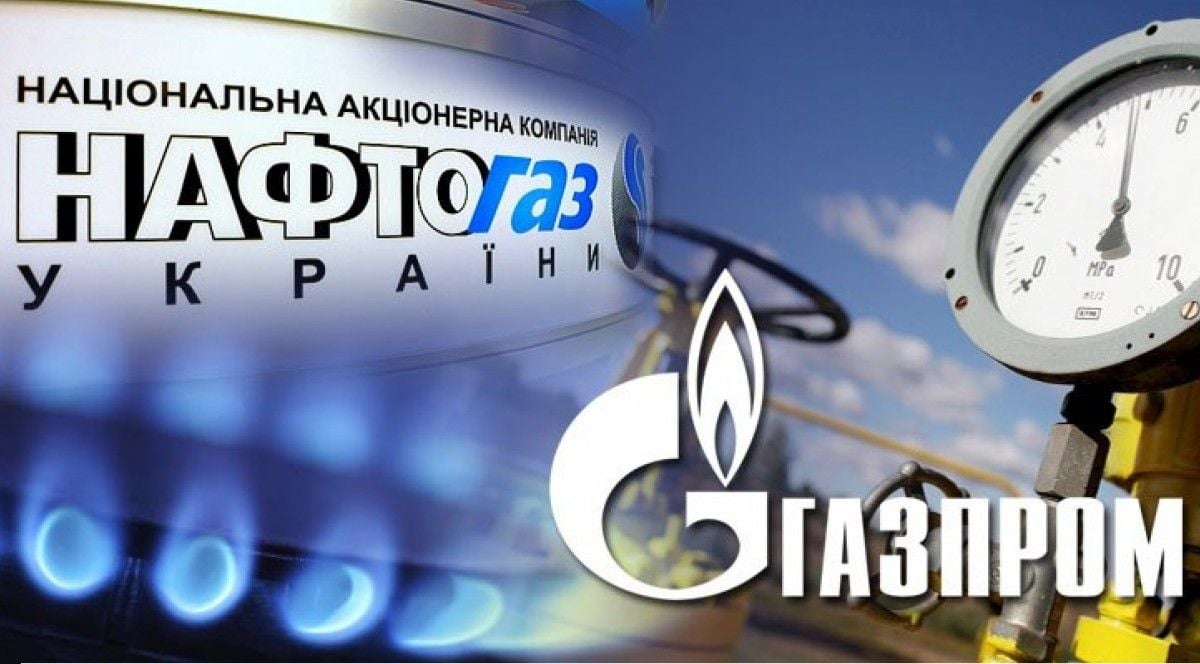
This week is ending with some very significant and positive news. The Stockholm Arbitration Chamber in the case on mutual claims of Naftogaz and Gazprom completely rejected the demands of the Russian side according to the "take or pay" principle the total amount of $56 billion, the press service of Naftogaz reported on Facebook.
"Naftogaz won an arbitration dispute against Gazprom under the gas supply contract on all disputable issues. The arbitration court completely rejected Gazprom's claims on the "take or pay" position in the amount of $56 billion for 2009-2017," the report said.
In addition, the copy of the final decision received by Naftogaz says that the Arbitration Chamber reduced by 27.4% (to $352 per 1,000cubic meters) the price of gas purchased from Gazprom in the second quarter of 2014. Also, the Stockholm Arbitration decided in favor of the Ukrainian side and reduced tenfold the mandatory annual volume of gas purchases by Naftogaz from Gazprom, in line with Ukraine’s needs, that’s from 52 billion cubic meters to 5 bcm a year.
Another important decision by the Stockholm Arbitration Chamber is that Naftogaz does not have to pay for the gas delivered to the temporarily occupied territories of Luhansk and Donetsk regions.
"Future supplies to these territories will not affect Naftogaz until the occupation of the territories in the east of Ukraine ceases. In any case, such supplies will not be included in annual contract volumes," Naftogaz said.
The company estimates the overall positive effect of the decisions by the Stockholm Arbitration in its favor in a dispute with Gazprom over a gas purchase contract at over $75 billion.
The gas transit issue still remains to be resolved. Naftogaz requires compensation from Gazprom totaling $16 billion under a transit contract. The decision by the Stockholm arbitration on this dispute is expected to be handed down in mid-February.
Promise to work for Ukrainians
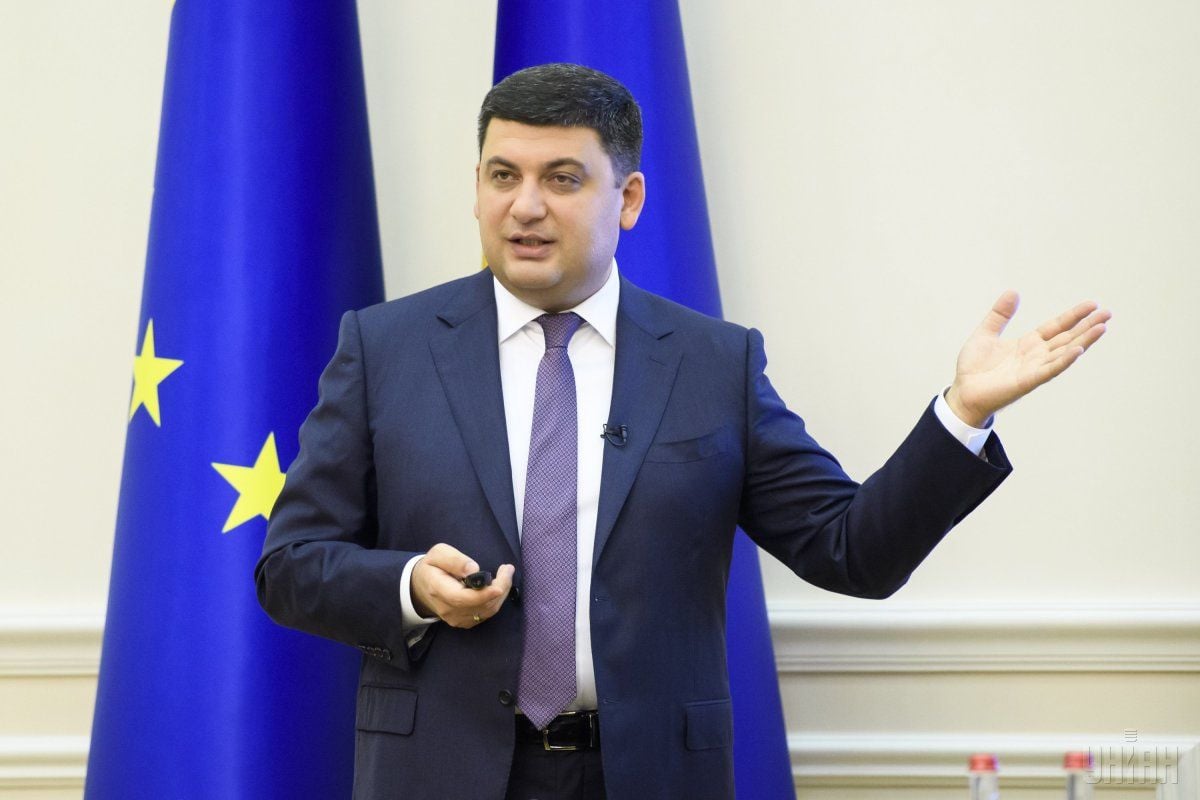
On the last business day of the week, PM Groysman summed up at a Kyiv press conference his work in 2017 and shared his plans for the next year.
Among the economic news coming from the prime minister is that the government is developing a new formula for gas prices for the next heating season, where the final cost of fuel will depend on fluctuations in foreign markets.
"We are developing a new formula that will operate from the next heating season. The price will depend on fluctuations in foreign markets, not on us," the prime minister said.
At the same time, according to the head of government, in the current heating season there are no grounds for raising the gas price.
Groysman also touched upon the issue of fluctuations in the hryvnia exchange rate. In his opinion, the issue is seasonal and the situation will stabilize in January.
In addition, the Prime Minister gave a forecast for GDP growth – Ukraine will see some "super" economic growth in the fourth quarter of 2018, under certain conditions.
"In fact, I believe that if we manage to consolidate and adopt about 10 economic initiatives, in the fourth quarter of 2018 we will see some super great economic growth," Groysman said.
Answering the question whether the prime minister supports the adoption of a bill called "Buy Ukrainian, support Ukrainians," Groysman said: "I support that you need to buy Ukrainian and pay Ukrainians. I believe that the time has come for discussions on how to create conditions for the creation of a national product and stimulate the purchase of Ukrainian goods, quality goods."
At the same time, he noted that in the law itself there are many discussion points that require professional reflection. As noted by Groysman, now on the agenda is the increase in pensions to military retirees. "Now our government team is working with the NSDC [the National Security and Defense Council ] to finalize the proposals," the prime minister said.
He recalled that the average pension for military servicemen nest year will grow by UAH 1,500, and assured: "Even if the bill is adopted in January or February, I will insist that pensions be recalculated from January."
At the same conference, the Prime Minister's promised to work for the Ukrainians next year.
"In 2018 I plan to work for the Ukrainians. For me, this is a challenge and the value that I preserve," the head of government said, answering the question whether he will remain in his current position.
Oleksandr Kunytsky

